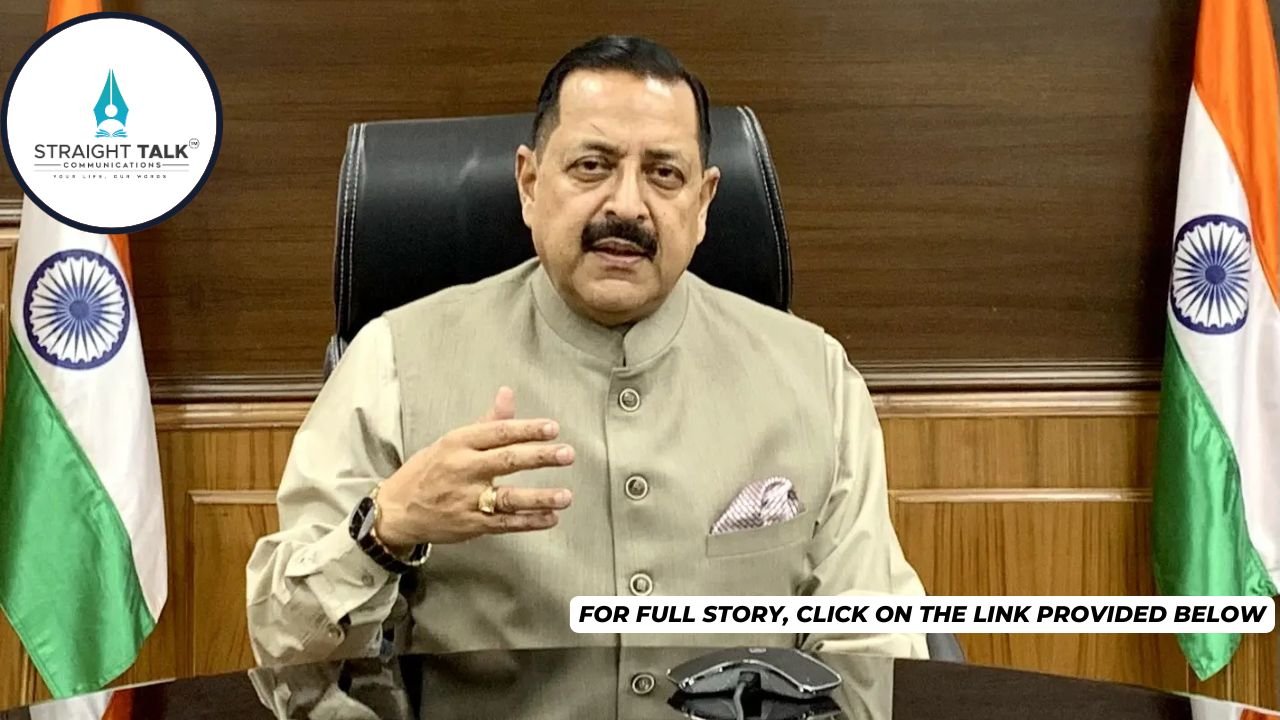Pension administration requires urgent institutional coordination and systemic reforms: Union Minister Dr. Jitendra Singh

STC NEWS DESK
NEW DELHI, JULY 02 (STC): The Centre is firmly committed to pensioners’ welfare, while also drawing attention to the mounting pressure on government finances due to litigation.
Union Minister Dr. Jitendra Singh today said this while chairing the first-ever “National Workshop on Pension Litigation” organised by the Department of Pension & Pensioners’ Welfare at Vigyan Bhawan.
He noted that with over 60 lakh pensioners today — a figure that now exceeds the number of serving Central Government employees — the challenges of pension administration have entered a new phase that requires urgent institutional coordination and systemic reforms.
He said that in no case should the vital energies of our elder citizens be allowed to be consumed inconsequentially for avoidable reasons because they may be “retired from government service but not retired from service to the nation”.
Addressing a packed hall of senior officials, legal experts and pension administrators, Dr. Jitendra Singh said, “Pension-related litigation often arises from misinterpretation of rules, and unresolved grievances can lead to unnecessary hardship for senior citizens.”
Currently, over 300 pension-related cases are pending in various forums, with nearly 70% before Central Administrative Tribunals (CAT). The Minister acknowledged that the Government is impleaded in nearly all of these cases, indicating the systemic nature of the problem.
“Litigation is usually the last resort, not the first,” the Minister said, cautioning against underestimating the grievances of pensioners. He also reflected on how, in many cases, both winning and losing parties in tribunals often appeal further, underlining the depth of discontent and the challenge of resolution.
To address these concerns, the workshop focused on legal training for nodal officers, stronger real-time coordination with the Department of Legal Affairs, and the potential use of technology — including AI-driven dashboards and repositories — to improve decision-making and case tracking.
However, Dr. Jitendra Singh emphasized that no algorithm can replace human empathy and administrative sensitivity. “AI can assist, but welfare must be guided by intelligence of the humane kind,” he remarked.
He ended on a poignant note, calling for a mindset shift in how retirees are viewed: “They may retire from government service, but not from serving the nation.”
As part of the workshop proceedings, Union Minister Dr. Jitendra Singh launched a set of key publications and initiatives aimed at enhancing awareness and grievance redressal mechanisms related to pension matters. These included a Compendium of Case Studies on Pension Litigation, a Flyer on Pension Litigation, and a Booklet on last year’s Special Campaign on Family Pensioners’ Grievances. He also formally launched the Special Campaign 2.0, a month-long nationwide drive dedicated to resolving pending grievances of family pensioners and super senior pensioners. These initiatives are expected to support capacity building, promote best practices, and ensure targeted outreach to some of the most vulnerable sections among pensioners.
Joining the workshop virtually, Attorney General of India R. Venkataramani stressed the need for a structured national approach to litigation management, with a special focus on pension disputes. He proposed an ambitious target of achieving “zero pension litigation” by 2028 through anticipatory administrative measures, timely grievance resolution, and a culture of accountability. Emphasising the unique nature of pension litigation compared to other service-related legal matters, he advocated for the adoption of mediation and conciliatory mechanisms as viable alternatives to adversarial proceedings. The Attorney General also highlighted chronic delays in processing pension claims — particularly for armed forces personnel — and called for the use of digital tools to improve real-time coordination between nodal officers, law officers, and his office. He proposed establishing a digitally connected standing platform to monitor and manage litigation across departments. “Pursuit of happiness,” he said, “should extend to our retirees,” urging all stakeholders to work collectively to ensure that pensioners are not left to navigate legal complexities in their twilight years.
(STC)







